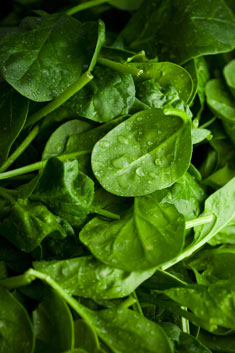
Photo: Kativ/iStock
Hip Fractures and Leafy Vegetables
Vitamin K, found in the likes of spinach and kale, is crucial to maintaining good bone health
The central role played by vitamins in bone health is not widely known among the general public. Vitamin C, as one example, is essential for the synthesis and repair of bone tissue. It also enhances calcium absorption, stimulates the cells that build bone and produces collagen, the connective tissue that holds bone tissue together.
For its part, vitamin K helps produce osteocalcin, which attracts calcium to bone tissue. The production of the bone matrix, in fact, is dependent on vitamin K. Without it, bones would be as soft as chalk.
Recent studies conducted by Sarah Booth, a bone expert at the Jean Mayer USDA Human Nutrition Research Center on Aging at Tufts, suggest that people with low vitamin K intakes have a significantly higher-than-average risk of hip fractures.
In one study, older men and women who consumed at least 254 micrograms of vitamin K a day were 65 percent less likely to have a hip fracture over the next seven years than similar people who typically consumed no more than 56 micrograms a day.
Vitamin K is commonly found in leafy green vegetables and green tea.
This story first appeared in the Spring 2008 issue of Tufts Medicine magazine.


